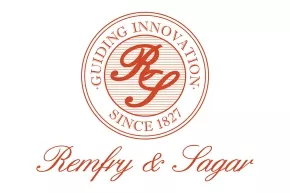- within Intellectual Property topic(s)
- in European Union
- within Intellectual Property topic(s)
- in European Union
- in European Union
- in European Union
- in European Union
- in European Union
- in European Union
- with readers working within the Pharmaceuticals & BioTech industries
- within Intellectual Property, Media, Telecoms, IT, Entertainment, Litigation and Mediation & Arbitration topic(s)
The evolving jurisprudence under Section 59 of the Indian Patents Act—which governs the scope of permissible amendments to patent applications—has recently witnessed divergent interpretations by the Delhi High Court.
In Abbvie Biotherapeutics Inc & Anr. v. Assistant Controller of Patents (C.A. (COMM.IPD-PAT) 44/2023 & I.A. 23895/2023), the Court adopted a strict interpretation of Section 59, holding that Abbvie's attempt to convert claims from a "method of treatment" to a "product" claim broadened the scope of the originally filed claims, rendering the amendment impermissible. In contrast, in Fresenius Medical Care Deutschland v. Controller General of Patents, Designs and Trademarks & Anr.(C.A. (COMM.IPD-PAT) 302/2022), the Court adopted a more liberal approach to determine the scope and amendment in claims, and allowed the amended claims at the appellate stage.
Section 59(1) permits amendments by way of disclaimer, correction, or explanation, or for incorporating actual facts. However, it expressly prohibits any amendment that claims or describes matter not in substance disclosed in the original specification, or any claim that does not fall wholly within the scope of the original claims.
Abbvie: Strict Interpretation
Abbvie Biotherapeutics' Indian Patent Application (No. 201817047767), titled "Anti-cMET Antibody Drug Conjugates and Methods for Their Use," originally included claims directed to methods of treating c-MET patient populations including combination therapy with other anti‐cancer agents (e.g., erlotinib, PD1 inhibitors). To overcome an objection under Section 3(i) of the Patents Act—which bars patentability of methods of treatment—Abbvie sought to amend its claims from "method of treatment" claims to "product" claiming an anti-cMet antibody-drug conjugate (ADC).
The Controller rejected the application, citing Sections 2(1)(j), 3(i), and 59(1). It was held that the amended claims were not in the nature of a correction, explanation, disclaimer, or inclusion of an actual fact-while the original claims dealt with the method of treatment of a specific cancer like non-small cell lung cancer (NSCLC), the amendments did not have any limitations with respect to a particular disease, and thus had a broader scope than the originally filed method claims. The Controller characterized this as a strategic attempt to sidestep the constraints of Section 59.
Aggrieved by the impugned order of the Controller, an appeal was filed by Abbvie.
On appeal, the High Court concurred with the Controller, observing that the amendment significantly altered the nature of the invention—from a disease-specific method of treatment to a broad, general product claim with no therapeutic limitation. This was deemed impermissible under Section 59(1). The Court drew support from the Supreme Court's ruling in Novartis AG v. Union of India [(2013) 6 SCC 1], which cautioned against "artful drafting" aimed at expanding claim scope post-filing.
The Court distinguished the case from Allergan Inc. v. Controller of Patents (C.A. (COMM.IPD-PAT) 22/2021), where similar amendments were permitted on the ground that the amended claims remained within the scope of the original specification and continued to relate to the same disease.
Fresenius: Liberal Interpretation
In Fresenius Medical Care Deutschland, the applicant filed Indian Patent Application No. 7493/DELNP/2012 for "Microvesicles (MVs) Derived from Adult Stem Cells for Use in the Therapeutic Treatment of a Tumour Disease." The application was rejected by the Controller on grounds of lack of novelty, inventive step, insufficient disclosure, and non-patentability under Sections 3(e) and 3(i).
On appeal, the applicant submitted an auxiliary set of claims, recasting the invention as a pharmaceutical composition comprising a MV derived from an adult stem cell for therapeutic treatment of a tumour disease.
For adjudication on the auxiliary set of amended claims, the Court relied on the judgements in Societe Des Produits Nestle SA v. Controller of Patents and Designs [2023 SCC OnLine Del 582] and Opentv Inc. v. Controller of Patents [2023 SCC OnLine Del 2771], to reiterate that appellate courts possess the same powers as the Controller under Section 15, including the power to entertain amended claims at the appeal stage.
While assessing the nature of amendments made by the Appellant, the Court held that the proposed amendments were in the nature of an explanation and disclaimer, and that they were not broadening the scope of unamended claims in any manner and the subject matter of the amendment was disclosed in the specification, thus complying with the requirements of Section 59 of the Act.
Thus, the Court allowed the amendment and remanded the matter to the Patent Office for reconsideration on the basis of the amended claims.
Conclusion
The determination of whether an amendment broadens the scope of claims is central to the application of Section 59. The decision in these two cases present distinct judicial perspectives on the interpretation of Section 59 of the Act, particularly concerning the extent to which the amendments can be made based on the original disclosure.
While both rulings apply the same statutory framework, their differing outcomes highlight the interpretive flexibility surrounding claim amendments under Section 59(1) of the Act, which the applicants may rely on to address varying circumstances during prosecution. As jurisprudence continues to evolve, so will strategic considerations for prosecution and litigation.
The content of this article is intended to provide a general guide to the subject matter. Specialist advice should be sought about your specific circumstances.



